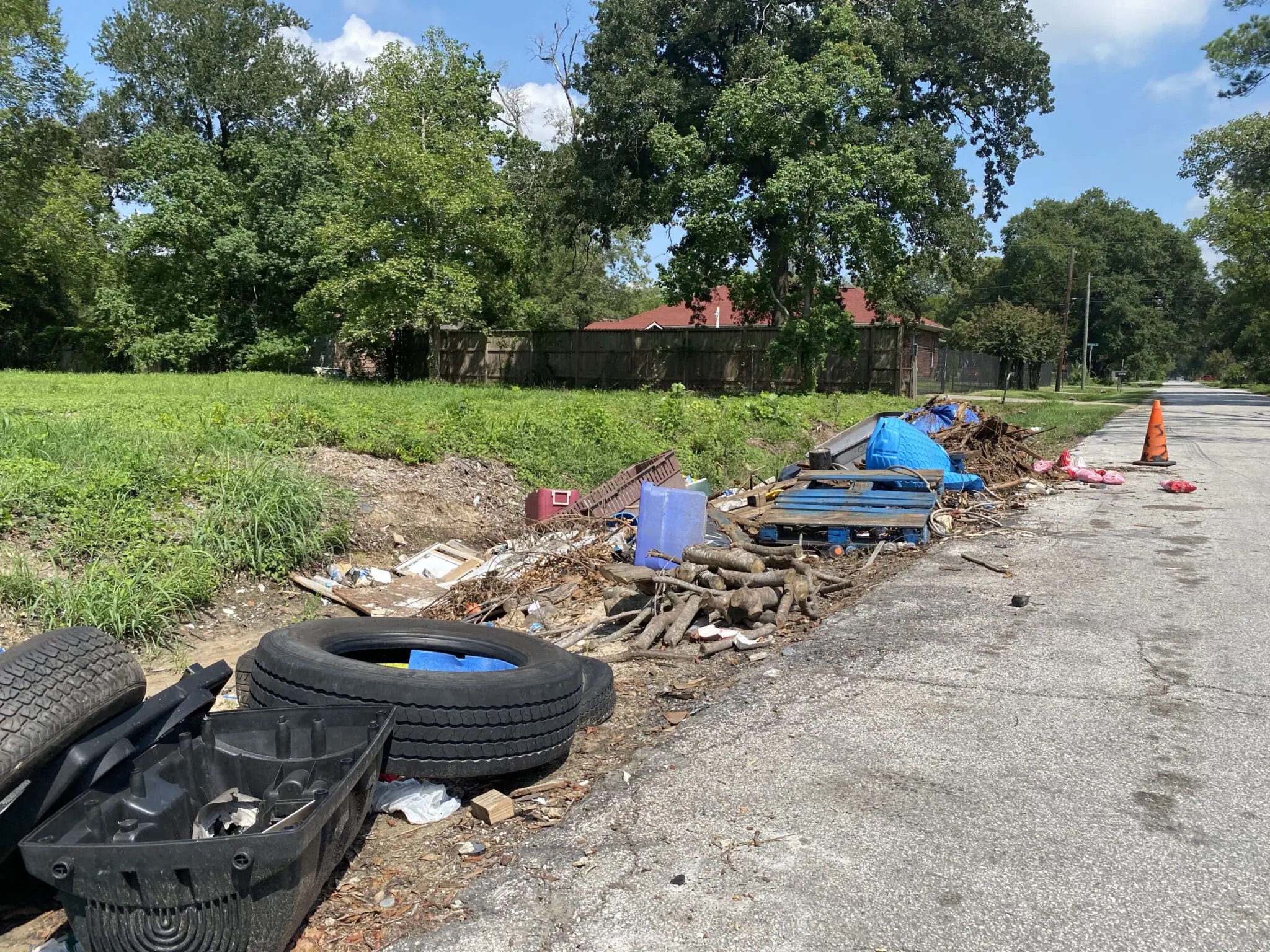City of Houston, DOJ reach settlement on alleged illegal dumping discrimination
The city is required to do more community outreach, monitor and provide data and more.


The city of Houston reached a settlement in a complaint alleging the city discriminated in responding to illegal dumping, violating the Civil Rights Acts in Black and Latino communities.
The City of Houston and the U.S. Department of Justice announced an agreement on Tuesday that tackles illegal dumping with additional guidelines from the DOJ. The guidelines require the city to do more community outreach, monitor and provide data on its efforts to address illegal dumping, and explore additional enforcement on commercial dumpers.
Mayor Sylvester Turner said he thanks the community for taking a stance on illegal dumping, but it will require the community’s help.
“We’re not going to solve this issue without the community stepping up to dispose of trash in the right way, to report dumping and violators and to raise awareness with their neighborhoods, their friends and their families,” he said.
The settlement to build upon Mayor Sylvester Turner’s $18 million One Clean Houston Initiative launched in March.
Turner said One Clean Houston has already made tremendous efforts by reducing its response time to illegal dumping from 49 days in 2022 to 11 days in 2023. The city has collected over 2,900 dumping sites, about 20,000 tons of debris, and filed 110 criminal charges this year, four times the number of charges filed this time last year. The city will soon be doubling the number of law enforcement officers in partnership with Constable Alan Rosen of Precinct 1.
“Collectively, I believe we have made a significant step in improving the quality of life for everyone who lives in our city,” said Mayor Turner. “Sometimes things don’t have to be contentious. Sometimes by working together, we can end up with a better product, and I believe today…we have ended up with a much better result.”
Residents of Super Neighborhood 48, which includes the Trinity/Houston Gardens area, for years complained about the city’s failure to respond to illegal dumping, which prompted the 10-month investigation by the Department of Justice last July. Community members alleged that the city is much slower at responding to illegal dumping in communities of color, than more wealthier neighborhoods. Lone Star Legal Aid filed the complaint on behalf of SuperNeighbor 48.
“The city of Houston as you have heard, has agreed to take a number of critical actions to address illegal dumping here in the city, an issue that has long plagued the predominantly black and Latino residents of Houston’s Trinity, Houston gardens super neighborhood 48 and other similar communities in the city,” Kristen Clarke, Assistant Attorney General for the Civil Rights Division of the U.S. Department of Justice. “The agreement memorializes the city of Houston’s and Mayor Turner’s efforts to ensure racially equitable responses to the environmental hazard and improve the quality of life of members of the Houston Community.”
Clarke said illegal dumping has many negative effects.
“Illegal dumping can contaminate surface water, groundwater and soil,” she said. “It decreases property values and discourages economic development, often communities that cannot afford to withstand these impacts. Illegal dumping contributes to increased flooding when contaminated waste blocks the flow of water to appropriate outlets, and illegal dumping contributes to increases in rodents and mosquitoes which can carry diseases.”
According to the DOJ, the agreement marks the second time that the Justice Department has reached a settlement in an Environmental Justice Investigation under its federal civil rights laws, and addressing environmental justice is a top priority.
“No one should have to live next to discarded tires, bags of trash, rotting carcasses, infected soils and contaminated groundwater, all caused by illegal dumping,” said Alamdar Hamdani, U.S. Attorney for the Southern District of Texas. “For too long now, Houston’s underserved and low income communities have had to bear the health burdens of the inaction and misdeeds of others. My hope is that this agreement, this resolution, is an important step in remedying those wrongs.”
The DOJ said it issued no findings against the city, but will monitor the agreement for three years.
– Written by Ashley Brown







